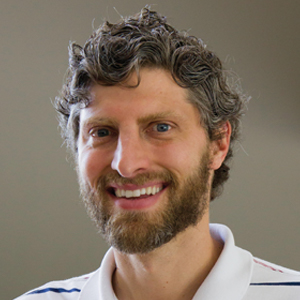Espenshade’s work called ‘brilliantly conceived and flawlessly executed’
The American Society for Biochemistry and Molecular Biology has named Peter Espenshade, associate professor of cell biology at Johns Hopkins University, the winner of the society’s Avanti Young Investigator Award in Lipid Research.

Peter Espenshade
About the award
The Avanti Young Investigator Award in Lipid Research, established by ASBMB’s Lipid Research Division, recognizes outstanding research contributions in the area of lipids by young investigators with no more than 15 years of experience since receiving their degrees (Ph.D. or M.D.). The award consists of a plaque, $2,000, and transportation and expenses to present a lecture at the 2012 ASBMB annual meeting.
According to Peter Devreotes from Johns Hopkins University, the implications of Espenshade’s work are “critical to research into the nature and prevention of cardiovascular disease and stroke.” Moreover, his multifaceted research on how cells regulate both oxygen levels and production of cholesterol “for the first time united the fields of sterol synthesis and oxygen regulation,” said Nobel laureate Michael Brown, with whom Espenshade trained as a postdoctoral fellow. “His work is original, brilliantly conceived and flawlessly executed.”
Randy Hampton, professor of biology at the University of California, San Diego, agreed. “Espenshade has an incredible sense of where to look to find really fascinating and important things – and what to do to turn them into great stories and lines of inquiry.”
After graduating summa cum laude from Princeton University, Espenshade completed his Ph.D. in biology at the Massachusetts Institute of Technology in 1997. During his postdoctoral fellowship with Brown and fellow Nobel laureate Joseph Goldstein at the University of Texas Southwestern Medical Center at Dallas, Espenshade used mammalian cell systems to decipher pathways involved in environmental sensing, in particular focusing on cholesterol homeostasis.
In 2003, he moved to his current position at Johns Hopkins, where he expanded his research to incorporate the fission yeast Schizosaccharomyces pombe as a model system. Espenshade’s ability to “exploit the strengths of both fungal and mammalian model systems to make paradigm-shifting discoveries” led Devreotes to nominate Espenshade for the award. “I have no doubt that his future achievements will be even more prominent.”
Espenshade will receive his award during the Experimental Biology 2012 conference in San Diego, where he will deliver an award lecture. The presentation will take place at 9:55 a.m. April 23 in the San Diego Convention Center.
Enjoy reading ASBMB Today?
Become a member to receive the print edition four times a year and the digital edition monthly.
Learn moreGet the latest from ASBMB Today
Enter your email address, and we’ll send you a weekly email with recent articles, interviews and more.
Latest in People
People highlights or most popular articles

Building a career in nutrition across continents
Driven by past women in science, Kazi Sarjana Safain left Bangladesh and pursued a scientific career in the U.S.

Kiessling wins glycobiology award
She was honored by the Society for Glycobiology for her work on protein–glycan interactions.

2026 ASBMB election results
Meet the new Council members and Nominating Committee member.

Simcox wins SACNAS mentorship award
She was recognized for her sustained excellence in mentorship and was honored at SACNAS’ 2025 National Conference.

From humble beginnings to unlocking lysosomal secrets
Monther Abu–Remaileh will receive the ASBMB’s 2026 Walter A. Shaw Young Investigator Award in Lipid Research at the ASBMB Annual Meeting, March 7-10 in Washington, D.C.

Chemistry meets biology to thwart parasites
Margaret Phillips will receive the Alice and C. C. Wang Award in Molecular Parasitology at the ASBMB Annual Meeting, March 7-10 in Washington, D.C.

